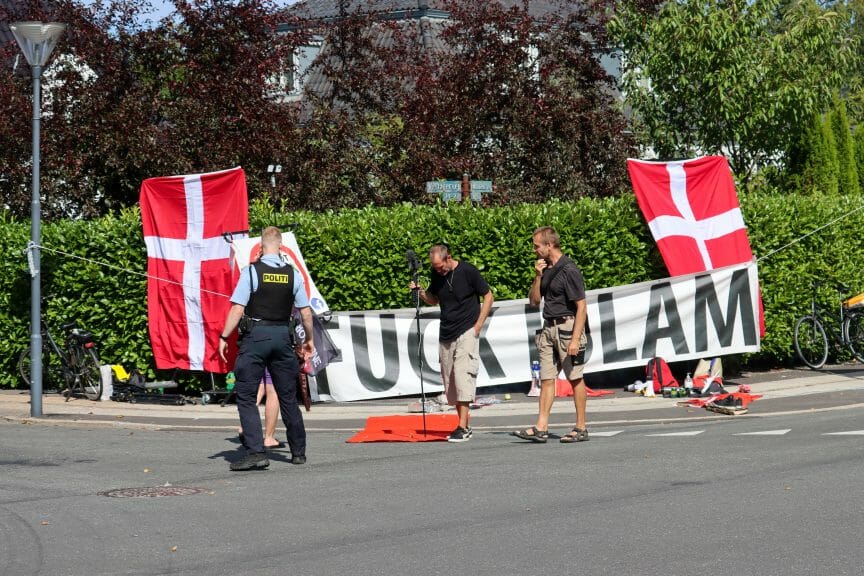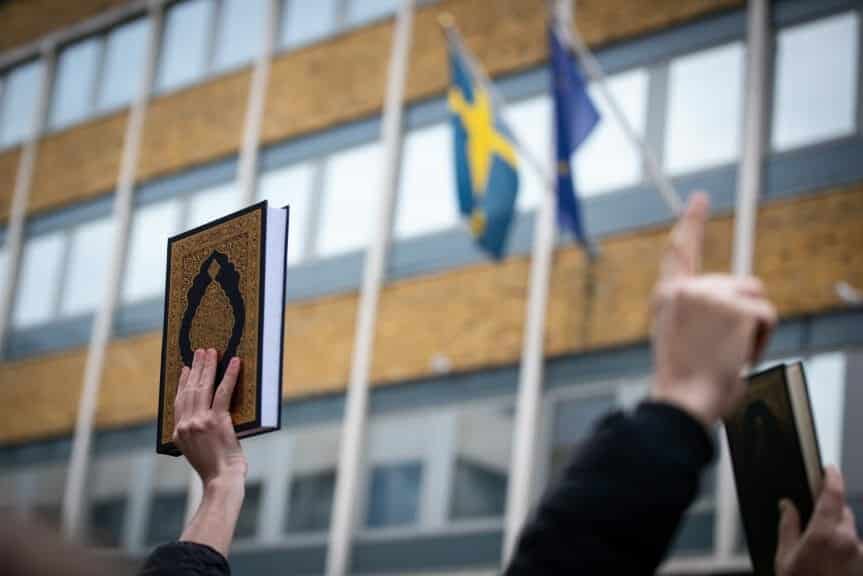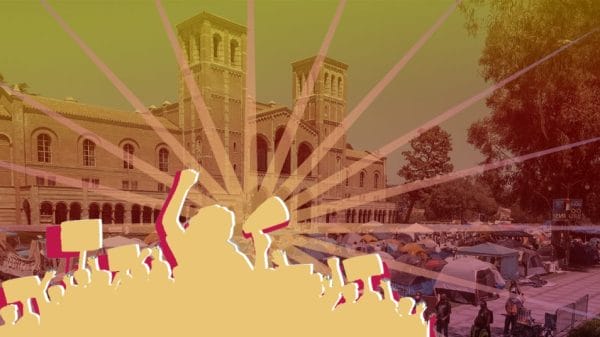This summer, two men kicked, stomped on and set fire to a copy of the Quran, the central sacred text of Islam, in Sweden.
In neighboring Denmark, anti-Islam protesters burned the Quran in front of the Iraqi embassy in July.
In June, a Christian Iraqi refugee burned the pages of the Quran on the Islamic holiday, Eid al-Adha.
These are just a few of the anti-Muslim demonstrations led by right-wing nationalists and Islamophobia this summer in Scandinavia.
Swedish and Danish nationalists champion the Christian majority in Sweden and Denmark. Some of these nationalists believe Islam is a threat to Scandinavian society and politics.
One Danish-Swedish politician, Rasmus Paludan, founded the Stram Kurs (Hard Line) party based on anti-Islam sentiments. As Paludan is known for his demonstrations, the UK barred him from entering and accessing the country after he threatened to burn the Quran.
In January, Paludan burned a copy of the Quran after giving an hour-long, anti-Muslim and anti-immigration speech outside of the Turkish embassy in Sweden. Consequently, the speech affected Turkey-Sweden relations.
Politicians and nationalist parties like Stram Kurs propel xenophobic sentiments through offensive actions that can be harmful to Sweden and Denmark’s relations with other countries.
Hindering Foreign Relations
Since Sweden and Denmark’s governments have done little to protect their Muslim populations, it reflects badly on their relationships with countries like Turkey, Iran and Iraq.

Turkey condemned the burning of the Quran copies earlier this year and hinted that change is necessary in order to approve Sweden’s NATO bid.
As Sweden needs Turkey’s support to join NATO, Sweden needs to remedy the rocky relations.
Since the laws on freedom of speech allow these demonstrations, there is not much the Swedish government can legally do. The only legal constraint is that a permit is required for demonstrations. However, authorities may refuse a demonstration only if safety concerns arise.
The Supreme Leader of Iran, Ayatollah Ali Khamenei, also condemned Sweden and asked them to subject the Quran burners to Islamic judicial systems.
When protesters burned a Quran copy outside of the Iraqi Embassy in Copenhagen, public protests in Iraq, Iran, Lebanon and Pakistan followed.
Protesters stormed the Swedish embassy in Baghdad, and others attacked the Danish Refugee Council, an aid group with facilities in Basra, Iraq.
Iraq expelled the Swedish ambassador from Iraq and removed the Iraqi ambassador from Stockholm.
The Far-Right and Anti-Immigration
Scandinavian countries are largely seen as tolerant and welcoming of immigrants. With parties and politicians championing the desecration of religious texts, the prior tolerance level is at a new low.
The wave of anti-immigration followed the 2015 Refugee Crisis, where Sweden took in the most refugees per capita in Europe. Sweden received 162, 877 applications for asylum in 2015.
The number of applications equates to 1.6 of Sweden’s population of 10 million. The influx of Muslims, specifically, has notably impacted Swedish society.
The Sweden Democrats, similar to Denmark’s Hard Line party, portray a negative narrative of Muslim immigrants and their effect on Sweden.
The party argues that there’s an increase in crimes, and the large number of migrants places strains on Sweden’s welfare system. The Sweden Democrats largely call for restricting any immigration, not solely Muslims.
With roots in Swedish fascism and white nationalism, critics accuse the Sweden Democrats of racism and xenophobia, although they denounce those claims.
However, their stand on limiting immigration is clear.
Many far-right parties across Europe have anti-immigration as the root of their party.
The United Kingdom Independence Party (UKIP) was one of the main forces successfully promoting Brexit in the United Kingdom.
Whether these parties have economic reasons or their anti-immigrant beliefs are based on xenophobic and racist sentiments, they have increasing support across Europe.














